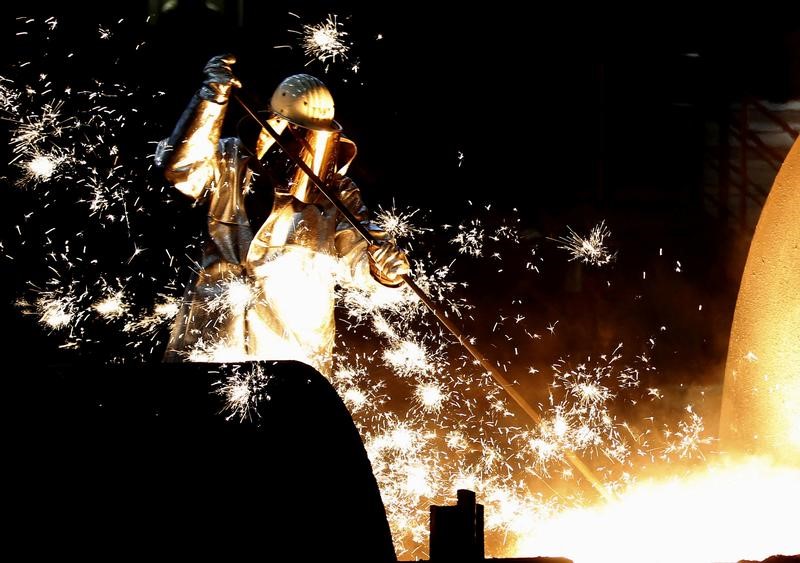DUESSELDORF, Germany (Reuters) - Around 72,000 German steel workers will get a 2.3 percent pay hike from April, and another 1.7 percent from next May in a deal struck overnight, one of several sectors in Europe's largest economy to give workers a solid wage rise this year.
The deal, which runs until the end of 2018, was reached for steelworkers in northwestern Germany after a third round of negotiations in the western city of Duesseldorf between employers' group Arbeitgeberverband Stahl and trade union IG Metall.
"With this wage result, employees are receiving a fair share of the economic success of the sector," IG Metall leader Joerg Hofmann said on Friday.
IG Metall had called for employees at firms like Thyssenkrupp (DE:TKAG) und Salzgitter (DE:SZGG) to get 4.5 percent more wages over the course of 12 months.
Employers had only agreed to a 1.3 percent rise during the last round of negotiations but thousands of steel workers have since exerted pressure by carrying out warning strikes.
Andreas Goss, head of Stahl and of Thyssenkrupp Europe, said a lower increase would have been preferable, but that had not been possible due to improving prospects for the steel industry, higher pay deals in other sectors and accelerating inflation.
In February, Germany's federal states agreed with trade unions a two-stage wage increase of 4.35 percent for more than two million civil servants and other public sector employees.

Private consumption helped the German economy to grow 1.9 percent in 2016 and economists expect domestic demand to drive growth this year thanks to record-high employment, increased job security, rising wages and rock-bottom borrowing costs.